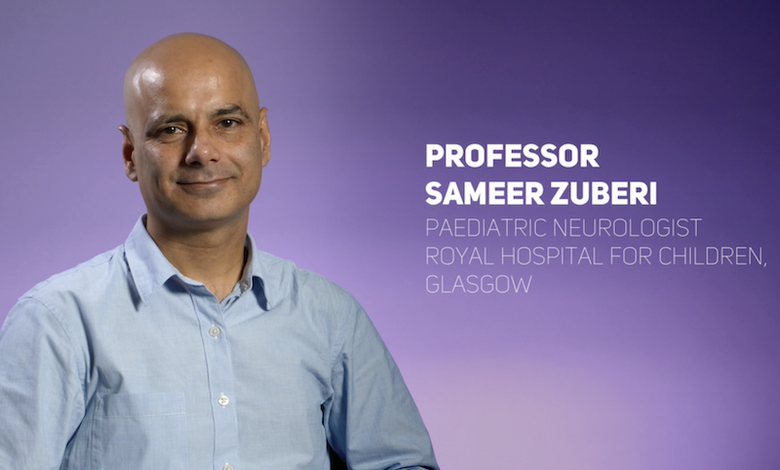Genetic Testing
The genetic test for Dravet Syndrome is a simple blood test, available free of charge via the NHS in the UK.
Below we discuss the benefits of testing, what the process involves, and why genetic counselling is always recommended.
What are the benefits of genetic testing?
Genetic testing is helpful in many different ways. A positive test for a genetic mutation can confirm a clinical diagnosis of Dravet Syndrome. This helps to prevent misdiagnosis, avoids further unnecessary investigations, and enables earlier and better-informed treatment choices, which may lead to better seizure control, ultimately improving quality of life.
A genetic test is especially beneficial for very young children (babies and infants), when it can sometimes be difficult to obtain a clear diagnosis of Dravet Syndrome on clinical grounds alone. However, testing has benefits at any age. For example, a recent study in adults with epilepsy and intellectual disability found 17 cases with SCN1A mutations in undiagnosed Dravet Syndrome patients, many of whom were taking sodium channel blockers. Removing those treatments, by finding the right genetic diagnostic, helped these patients improve, including the ability to learn new words at age 41.
In the video below, Professor Sameer Zuberi, Consultant Paediatric Neurologist at the Royal Hospital for Children in Glasgow and DSUK Medical Advisory Board member discusses some of the benefits of genetic testing for Dravet Syndrome from a family perspective.
What's involved in genetic testing?
The genetic test typically involves taking a blood sample from the individual with suspected Dravet Syndrome (sometimes doctors will take DNA from a cheek (buccal) swab or a saliva sample). The sample is sent to an accredited laboratory, where it is screened for evidence of a change in the genetic code, particularly in the SCN1A gene.
The tests come back to your neurologist, who may also ask a geneticist to help interpret the results. The way in which test results are reported to families may vary from clinic to clinic. You may be contacted before the clinic appointment for more information about the reason you have been referred; this may include being asked to give a family history.
Most genetic appointments are 45 to 60 minutes long, so you should not feel rushed. Several relatives may attend an appointment together, if they wish.
In the video below, Professor Sameer Zuberi talks through the process involved in genetic testing.
The British Society for Genetic Medicine also provides some helpful information about what is involved in a genetic test here.
Genetic counselling is always recommended
One of the benefits of genetic testing is that it helps to give "an answer" to possibly years of uncertainty. At the same time, we know from experience that testing can be an emotional and difficult time for families. The outcome may just be the start of their Dravet journey. Whether a test turns out to be positive or negative, genetic counselling is always recommended, both before and after testing.
Pre-test genetic counselling can help families to understand the nature of the test, the risks and benefits involved and the potential results of the test. After you've received the test result, follow-up counselling provides an opportunity to talk through what the test results mean for your child, for parents/carers and your family.
An important aspect of genetic counselling is that it provides support with the emotional and family implications of a genetic condition. This could be support with coping and adjustment to a diagnosis, or help with how to tell other members of the family about the possibility of the condition being passed on.
To receive genetic counselling, your neurologist (or the healthcare professional treating you) will need to refer you to your local NHS Regional Genetics Centre or to a private provider.
More helpful information about genetic counselling is available via the Genetic Disorders UK website and the NHS website (including a list of NHS genetic centres).
What happens if the test comes back negative?
If you have a clinical diagnosis of Dravet Syndrome but do not have a confirmed genetic diagnosis then it may be worth speaking to your neurologists about revisiting the gene test, after a certain amount of time. While the current tests are very reliable, every year there are advances in technology and how gene testing is carried out. In addition, scientists are identifying new genetic mechanisms within genes, including things that could not be tested for, even three or four years ago.
It is important to know that negative test results do not prevent a clinical diagnosis of Dravet Syndrome, nor prevent families from accessing support provided by DSUK.
Many thanks to our Medical Advisory Board member, Andreas Brunklaus, for his assistance in co-authoring this section of the DSUK website.

